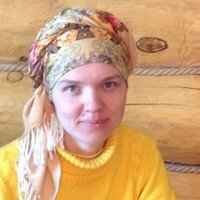TRANSLATOR’S NOTE
Elena Koroleva
Janga Todosh Bedyurov (1916-1961). The Altai poet Janga from the exogamous Todosh family was born in 1916 and worked since the age of 9. When his father died, he independently learned to read and write in the Altai and Russian languages. In 1928, he was drafted into the army and subsequently spent almost all his life in military service. In 1936, he was repressed, spent a year and a half in prison, and was deprived of all military ranks and awards. In 1939, Janga was again drafted into the army, took part in World War II, and participated in the Battle of Moscow, the Battle of Kursk, and the siege of Konigsberg. He was discharged from the service in 1946 after nine severe wounds. Later, until his death, he worked in agriculture in the Gorno-Altai Autonomous Region of the USSR.
According to linguists, the Altai language belongs to the Kyrgyz-Kipchak or Altai-Sayan branch of the Turkic-Mongolian family of languages. Janga began writing poems in the Altai language in the 1920s in a folk song manner. His poems are created in the form of paired stanzas, which are traditional for Turkic-Mongolian poetry and have four and five line sizes. In the original Altai verses, there are anterior syllabic and terminal rhymes. It is possible to reproduce anterior syllabic rhyme in English, but it seems impossible to make an accurate translation in such form. The poet wrote many of his poems in letters during World War II and sent them to his family. According to the Altai tradition, all private things of a deceased person should be destroyed or buried together with the deceased. The poet's letters miraculously escaped this fate and were published by his children after his death.
The following collection contains verses from different series: Blessings (Alkysh), Curse (Kargysh), Victory songs, etc. The songs of blessing are interesting because the poet addresses the mountains and rivers of Altai to the highest holy beings with a request to send a blessing or conduct a traditional rite of girdling. He is sure that his native Altai will help him wherever he is. Just as mountains, rivers, and lakes are presented to Janga as individuals who have their own will, character, and power to influence people's fate, the poet uses metaphors of landscape elements to describe his or his wife's inner state.
The traditional ideas of the Altaians about the inner world and human nature are quite different from the Christian ones. In particular, there is no opposition of soul and body, but various shells (Buddhist skandhas) are strung on a thread during a person's lifetime, like beads of a rosary. After death, the connecting thread breaks, after which a person ceases to exist in the solar-lunar world, where there is a flow of time. Altaians believe in reincarnation and the law of karma, a consequence of the interconnection of all living. Therefore, it is impossible to do evil without consequences. In his curse, the poet does not call disasters on the enemies' heads; there is no need for this, but he claims that he will see their attack with his own eyes, which means he will survive.
The last poem is a traditional speech before drinking and contains an ancient motif of poisoning at a feast. The cup with arak in Turkic-Mongolian poetry is a metaphor for the cup of fate. Therefore, the hero cannot refuse to drink it, even knowing it is poisoned, just as he cannot refuse his honor, name, and path.
Elena Koroleva is a historian and folklorist. Her research investigates oral history of Russian Old Believers and Altaians in the late twentieth and early twenty-first centuries. Koroleva’s dissertation is on Altai folk legends as historical sources. She is a professional translator of historical texts from the language of the Turkic-Mongolian peoples into Russian and other European languages. She continues to develop in this direction and carry out scientific activities at the present time.
